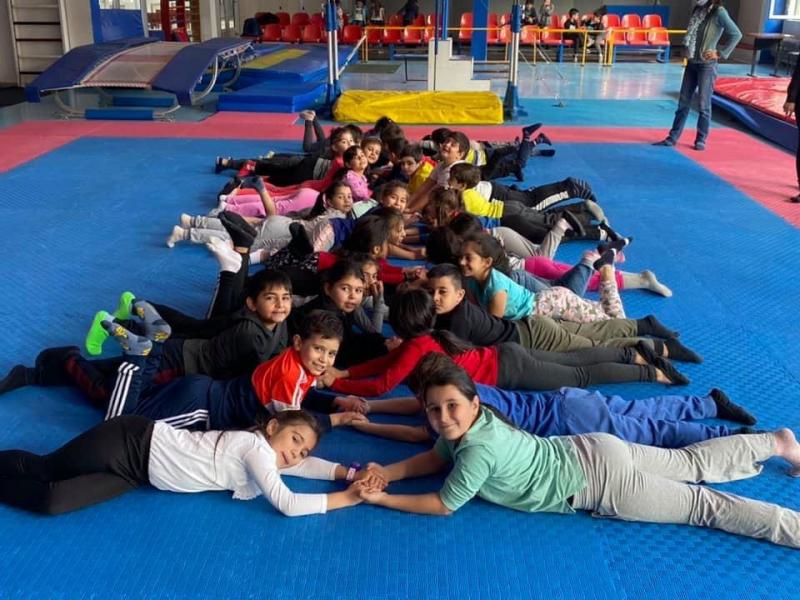Mkhitar Sebastatsi Educational Complex has an alternative author educational program, the important component of which is learning through games. The educational complex provides a play-creating environment, where students have real freedom, protection, live real joy.
There is a year-round garden in the educational complex with its autumn, winter, spring and summer play-creating environment, conditions, where we organize various, diverse, alternative educational-game activities with the students. We cooperate with the parents for the organization of each game, thus ensuring the daily involvement of the parent in the educational process.
Each game has its own motivation, thanks to which a number of skills and abilities develop:
• Creative imagination
• Logical thinking
• Skills and abilities to communicate, getting to know each other, working together
• Ability to play in a team
• Small motor skills
• Focusing attention
• Technological skills
• Physical abilities
• General inclusion and etc.
Introducing a variety of amazing game palette, we aim at organizing learning through games, so that the learner does not feel how he learns, how much he learns, when he learns. In a constantly developing media environment, it is necessary to create a unified educational environment dominated by friendship and creativity built on the interaction of each other. As a result creative individuals are brought up.
Through yard-national games, learners get acquainted with national games, and rituals.
We have named the game with fruits Fruit-hunting. The learners are to hunt hung fruits without hands and then eat them.
We organized a parade of scooters.
We play a lot of fun games with Rodari tricks, such as the game “Hands free Rodaris”, during which we had juice sticks and different colored papers on the table. We were divided into groups. Each learner had his/her own color. Orienting quickly, the learners tried to take the papers with a stick and put them in a cup without the help of their hands.
Not only learners are involved in learning through games, but also teachers, who become the learners’ playmates. Games are often created spontaneously, without any initial preparation. We support every activity of family schools. We have had fun, spontaneous projects in family schools, for example, “Vine Graphics “, “Leaf-Mathematics”. We have played “Apple- Mathematics” in class, created summer colors in the yard, played different games with colors – “colored bottle bowling”, “Sponge game”, “Tied with adhesive tape”, etc.
To play “Bottle Bowling” we filled the bottles with water colored with watercolors. Then the learners rolled the ball to the bottles counting how many bottles fell and how many remained. During the “Sponge Game”, the students were divided into two groups: reds and blues. They put the sponges in a container full of water, then ran forward, squeezing the sponge into an empty container. The winner was the team that had more water in their container. During the game “Tied with adhesive tape” we were divided into two groups – reds and yellows. We tied the students’ feet with adhesive tape, the students had to walk forward and empty the glass of water in their hands into a container.
Shadow Painting is another fun game. The learners were divided into groups. One learner stood in the position he wanted, and another one drew on his/her friend’s shadow lines.
We play a lot of Sports Games . The learners show their sports skills.
The winter sports review starts in January, during which we organize winter sports games, play yard games and compete.
The implementation of projects in the learning process is complete, if it does not end, it is continuous, year-round. The creative thinking of the teacher, the parent, the learner allows to ensure the continuity of the program, to ensure a constant connection between the parent, the teacher, and the educational institution, as a result of which the level of self-education increases.
Translator: Yura Ganjalyan

